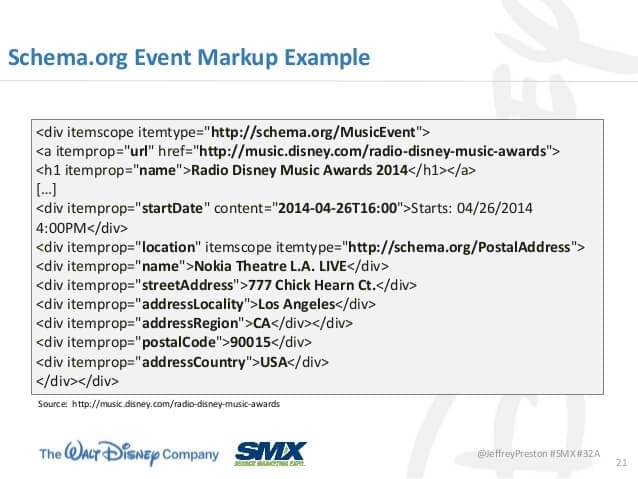
 5-essential-seo-predictions-to-watc...
5-essential-seo-predictions-to-watc... 
As we ring in a new year, we SEOers will once again look to staying one step ahead of Google’s algorithm updates. Will we see another Mobilegeddon? Will Twitter set up a permanent nest in the SERPs? Will Google+ find its purpose in life? In the ever-changing landscape of search marketing, speculating on future advancements is the name of the game, which is why I’m starting 2016 with five of the most important SEO predictions…
-
Mobile-Optimisation Will Surpass Desktop Optimisation in Importance
On April 21, 2015, Google released a noteworthy mobile ranking algorithm designed to give a lift to mobile-friendly pages in mobile search results.
With mobile users growing in numbers, mobile searches actually surpassed desktop searches earlier this year. This shift will continue into 2016 and beyond making mobile traffic by far the more important.
In addition to optimising for page speed, below is checklist that will make Google happy by ensuring a great user experience.
- Use simple navigation
- Use a “click-to-call-button” for easy phone number access.
- Make sure text is readable and concise.
- Make sure calls-to-action are designed with mobile in mind.
-
Apps and Deep Links To Them Will Become More Important For SEO in 2016
With the continued rise of mobile use, apps may eventually overtake traditional websites in popularity and functionality. For this reason, important SEO techniques will include App Indexing.
Starting in 2016, “deep links” to apps (meaning links that point toward a specific page or section of a specific app) will start to carry more meaning.
Benefits of App Indexing:
- This will help increase app installs. Users that do not have your app installed have the ability to do so on matching queries from the search.
- This gives users that have your app installed, access to deep content in your app-directly from a search result.
- When the app is installed Google will be able to show enhanced display elements such as the app icon which will help promote re-engagement.
-
Structured Data Markup Will be More Vital in 2016
Structured data is an important element of SEO and Google will place more emphasis on this in 2016. This is on-page markup that enables search engines to better understand the information on a website. Structured data makes it easier for crawlers to determine the fundamentals such as NAP data, and more complex information like articles, events, products, recipes and even the recently launched critic reviews schema markup.
Marking up your pages not only makes it easier for search engines to properly categorise your site’s content, but it also can be used to define and display rich snippets of your content in search engine results pages. A major benefit to rich snippets is that they can result in higher click-through rates if users can quickly identify what they are looking for, but at the same time could reduce traffic to the site if the information is readily displayed in the SERP.
It is believed that, in 2016, Google will be expanding on how they use markup within the search results, knowledge boxes and panels.
-
The Yin Yang of Increased Indexing of Social Content With Search in 2016
In 2015 Google successfully negotiated arrangements with Facebook and Twitter so that whether you are searching for “mittens for kittens” and how to take your business global, or for “hot dudes in pink bear onesies,” [Donate today!] chances are you will probably see a tweet pop up on your mobile SERPs.
2016 should show more platforms profoundly indexed and accessible to Google. Social posts will carry a significance/attention similar to any web page, and “web” and “social media” will mesh even more from an SEO perspective.
-
The Evolution of Content Marketing in 2016
The Move toward Themes, Not Just Targeting Keywords:
Google algorithm updates such as Hummingbird and Panda updates have shown that concepts have become more significant than just individual keywords in search marketing. Content today needs to be about something that your audience is looking for to provide that user experience Google encourages.
SEO and Website Strategist Cyrus Shepard explains that search marketing and themes are associated in three primary ways:
-
What the user intends
Google is about user experience and wants to better understand what the audience is asking by relating that question to concepts and themes not just the specific pages optimised for the keywords in the search.
-
What your content is about
Search engines read the keywords on your pages to try and figure out what those pages are conceptually about.
-
Relating concepts to one another
Google will display search engine results pages, relating concepts to each other. If you search a movie title, this may be showing how the film relates to ratings, reviews, actors, writers, cast and if there is a book based on the film.
10x Content:
“Refers to content that is 10 times better than the best result that can currently be found in the search results for a given keyword phrase or topic.” — Rand Fishkin, Moz
Qualities of 10x Content
10x Content delivers a uniquely positive user experience through the user interface, visuals, layout, fonts, patterns, etc. Not all of the below criteria are required as the key factor is that the piece is unique and encourages readers to share.
- Provides a uniquely positive user experience through the user interface, visuals, layout, fonts, patterns, etc.
- Delivers content that is some substantive combination of high-quality, trustworthy, useful, and interesting
- Is considerably different in scope and detail from other works on similar topics
- Loads quickly and is usable on any device or browser
- Creates an emotional response of awe, surprise, joy, anticipation, and/or admiration
- Has achieved an impressive quantity of amplification (through shares on social networks and/or links)
- Solves a problem or answers a question by providing comprehensive, accurate, exceptional information or resources.
Like every year, the most important SEO tip is to make Google happy and in 2016 this means “UX” – User Experience. As competition continues to grow, marketers must realise it’s not just about ranking high if your audience is not happy – you are required to deliver what your target audience actually wants to see and engage.
Users want quality information – quickly and easily. With the rise of mobile use, be sure to optimise for this via responsive design, speed and app indexing. Help Google better understand what your page is about with microdata markup on vital information. This will be displayed in SERPs so you can enjoy a higher CTR.
Go the extra mile by using the qualities of the 10x Content. This will help you to implement all the above tips and ensure that you think in terms of concepts, not just keywords.
For more information on planning your SEO strategy for the year ahead, contact a DAC specialist today.








